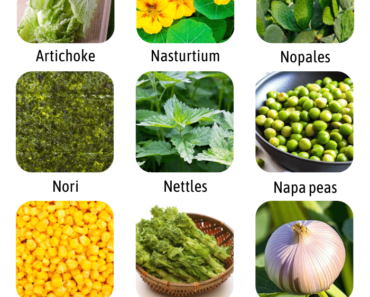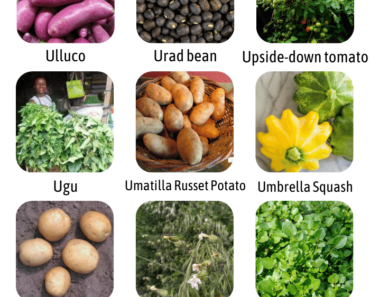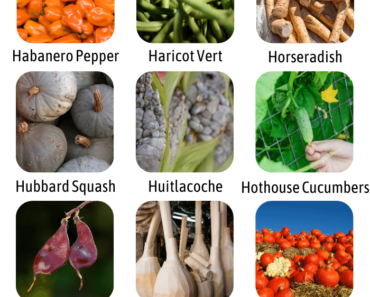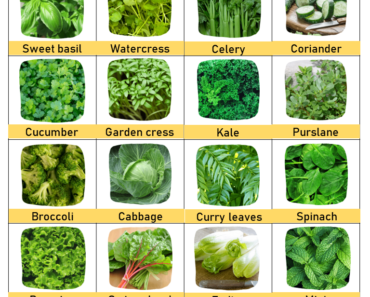List of Vegetables With J! Vegetables are sometimes used as a substitute for meat in vegetarian and vegan diets. Below is the list of vegetables that start with j.
All Vegetables That Start With J
- Jaboticaba
- Jackfruit
- Jacob’s Cattle Beans
- Jade Beans
- Jamaican Hot Pepper
- Japanese Artichoke
- Japanese Cucumber
- Japanese Daikon
- Japanese Horseradish
- Japanese Mustard Greens
- Japanese Pumpkin
- Japanese Radish
- Japanese Spinach
- Japanese Sweet Potato
- Jarrahdale Pumpkin
- Jazzy Mix Kale
- Jerusalem Artichoke
- Jicama
- Jimmy Nardello’s Sweet Italian Pepper
- Joe’s Long Cayenne Pepper
- Johnny Jump Up
- Jungle Peanuts
- Juniper Berries
- Jalapeno pepper
- Japanese eggplant
10 Common Vegetables Beginning with J (Definitions and Pictures)
Jalapeno Pepper
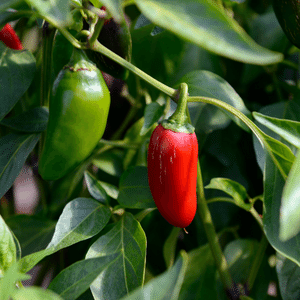
Jalapeno pepper is a type of chili pepper that is commonly used in Mexican and Tex-Mex cuisine. It is usually green when immature, red when fully ripe, and has mild to medium heat. Jalapenos are a good source of vitamin C, which can help boost immunity and protect against cellular damage. They also contain small amounts of vitamin A, potassium, and dietary fiber.
Jicama

Jicama is a root vegetable that is commonly used in Latin American and Southeast Asian cuisine. It has a crunchy texture and a slightly sweet, nutty flavor. Jicama is a good source of dietary fiber, which can help improve digestion and lower cholesterol levels. It is also rich in vitamin C, which can help boost immunity and protect against cellular damage.
Jerusalem Artichoke
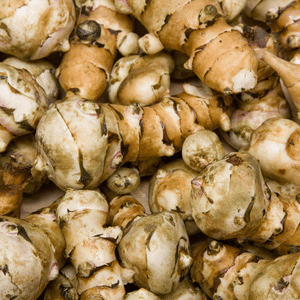
Jerusalem artichoke, also known as sunchoke, is a type of sunflower root that is commonly used in North American cuisine. It has a slightly sweet, nutty flavor and a crunchy texture. Jerusalem artichokes are a good source of dietary fiber, which can help improve digestion and promote bowel regularity. They are also rich in potassium, which can help regulate blood pressure and support healthy heart function.
Japanese Eggplant

Japanese eggplant is a type of eggplant that is commonly used in Japanese and Southeast Asian cuisine. It has a thin skin and a tender, creamy flesh that is often used in stir-fries and curries. Japanese eggplant is a good source of dietary fiber, which can help improve digestion and lower cholesterol levels. It is also rich in antioxidants, such as anthocyanins, which can help protect against cellular damage and reduce inflammation.
Jackfruit
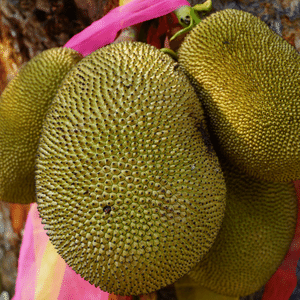
Jackfruit is a large, tropical fruit that is commonly used in Southeast Asian cuisine. It has a sweet, tropical flavor and a fibrous, meaty texture that makes it a popular vegan meat substitute. Jackfruit is a good source of dietary fiber, which can help improve digestion and promote bowel regularity. It is also rich in vitamin C, which can help boost immunity and protect against cellular damage.
Jersey Sweet Potato

Jersey sweet potato, also known as Jersey yam, is a type of sweet potato that is commonly grown in New Jersey, USA. It has reddish-purple skin and a deep orange flesh that is sweet and creamy. Jersey sweet potatoes are a good source of dietary fiber, which can help improve digestion and promote bowel regularity. They are also rich in vitamins A and C, which can help support immune function and maintain healthy skin.
Juniper Berries
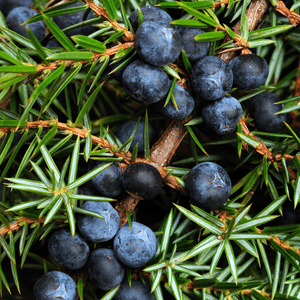
Juniper berries are a type of fruit that comes from the juniper tree. They have a slightly sweet, piney flavor and are commonly used as a spice in European and Scandinavian cuisine. Juniper berries are a good source of antioxidants, which can help protect against cellular damage and reduce inflammation. They also have diuretic properties, which can help promote kidney function and reduce water retention.
Jerusalem Cherry

Jerusalem cherry, also known as the Christmas cherry, is a small fruit that is commonly used as a decorative plant during the holiday season. It has a sweet, slightly tart flavor and is often used in jams and preserves. Jerusalem cherry is a good source of vitamin C, which can help boost immunity and protect against cellular damage.
Jimsonweed
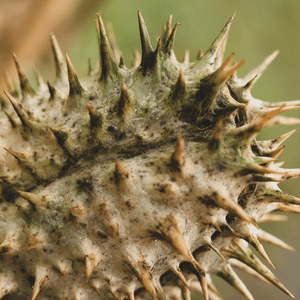
Jimsonweed, also known as thorn apple, is a type of plant that is native to North and South America. Its leaves and seeds contain toxic chemicals that can cause hallucinations, delirium, and other symptoms when ingested. Jimsonweed should not be consumed and can be dangerous. However, it has been used for medicinal purposes in traditional medicine for conditions such as asthma and pain relief. It is important to note that the use of Jimsonweed for medicinal purposes is not recommended due to its potential toxicity.
Jute Leaf

Jute leaf, also known as saluyot, is a leafy green vegetable commonly used in West African, Southeast Asian, and Middle Eastern cuisine. It has a slightly slimy texture and a mild, nutty flavor. Jute leaf is a good source of dietary fiber, which can help improve digestion and promote bowel regularity. It is also rich in vitamins A and C, which can help support immune function and maintain healthy skin. Additionally, the jute leaf is a good source of calcium and iron, which can help support bone and blood health.
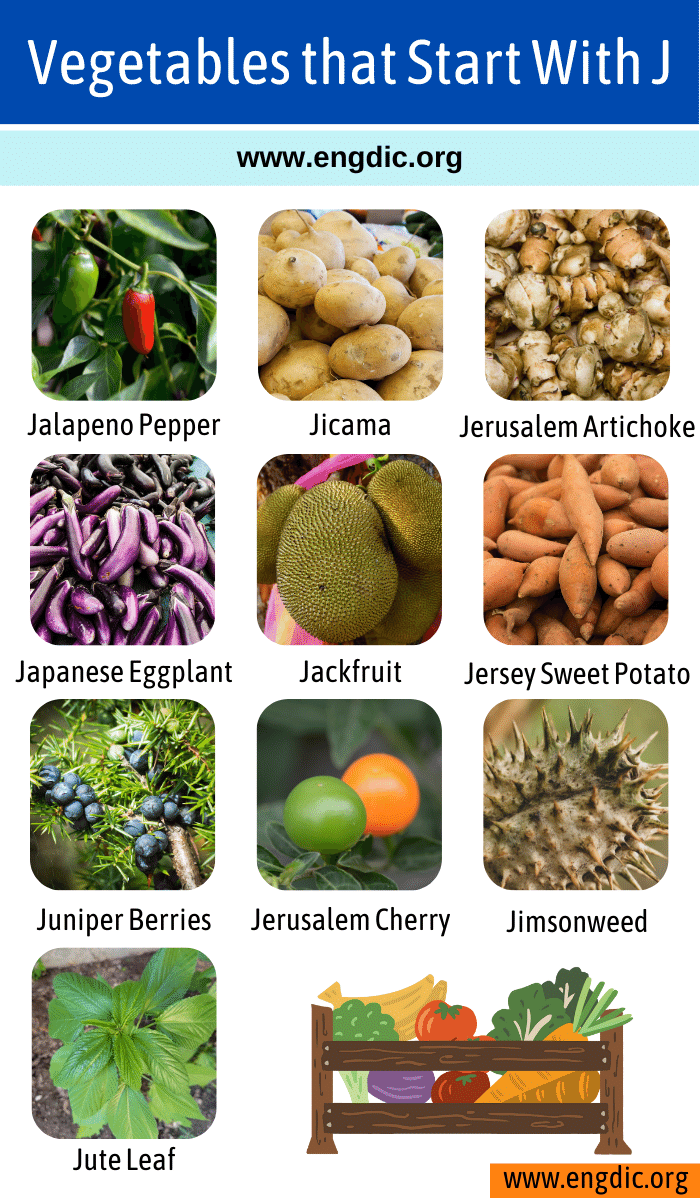
Explore other vegetables starting with:
A – B – C – D – E – F – G – H – I – J – K – L – M – N – O – P – Q – R – S – T – U – V – W – X – Y – Z

